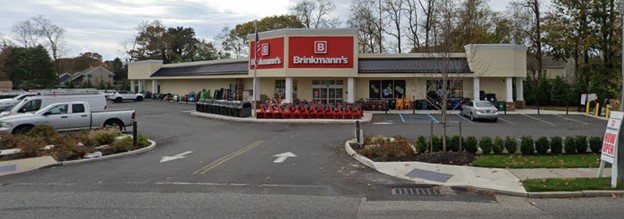The Fifth Amendment is an essential part of the Bill of Rights, ensuring, “nor shall private property be taken for public use without just compensation.” Sometimes private property stands in the way of public progress, such as when highways are built. The public good cannot be held hostage by one owner, whose refusal to sell might block needed infrastructure projects. Thus, all governments have the right of “eminent domain” to handle such cases, and they must pay owners the fair market value of land taken for public use.
What is a “public use” under the law? It’s more than just infrastructure – a lot more. The Supreme Court determined in the 1950s that elimination of slums could be considered a public purpose, in a case involving Washington, D.C. neighborhoods. More recently, the Court has allowed local governments to enhance their revenue by turning over one person’s property to another owner who will build something more taxable.
Now, the Supremes have let stand a lower court’s ruling allowing a town government to take private property, for no use at all, but merely to stop the owner’s plan to build a store. A store allowed by local laws on property zoned for commercial development.
The case involved brothers Hank and Ben Brinkmann, whose business is a classic American success story. Their parents built a small hardware store on Long Island in 1976 that grew through hard work, reasonable prices, and good customer service. They turned the company over to their sons, who have grown it to five “Brinkmann’s True Value Hardware” stores. In researching locations for a sixth, they identified a perfect parcel of commercial land in the village of Mattituck, which they bought for $700,000 in 2018. Then they ran into a buzz saw.
There is another True Value franchise store a couple blocks away in the same village, so before buying the land, they first considered buying the other store and keeping its owner, Rich Orlowski, as manager. He has a similar all-American success story. He worked at the store as a college student, bought it when the owner retired, and now “Orlowski’s True Value Hardware” is a popular establishment. Rich was intrigued and talked to Hank and Ben several times, but eventually set a price the Brinkmanns thought was too high, so they bought the vacant land and planned a competing store. That’s competition and free enterprise.
But Orlowski decided to use the power of local government to prevent the competition. He hired an insider who had been the town’s attorney, and the town began to use every tool to stop the Brinkmanns. First the town tried to interfere with the land purchase, then imposed an exorbitant fee for a “market impact study.” Brinkmann’s paid for it, but the town never did the study, instead imposing a “moratorium” on building permits that applied only to that parcel. The town lost that lawsuit, so finally resorted to eminent domain to take the land “for a park.”
The town had never planned any park there, nor is there yet any plan for that land, now called a “passive park,” leaving the remains of an old derelict home on the overgrown lot. The town board briefly discussed putting a park bench on the site, but decided it was premature because Brinkmann’s had filed suit to stop the use of eminent domain to take their land for no public purpose.
In its legal filings, the town didn’t mention Orlowski, but instead accused Hank and Ben of trying “to construct a big box hardware store in a small, semi-rural hamlet…” Big box store? The proposed Brinkmann’s store would have been less than one-tenth the size of an average Home Depot. The property is on U.S. Highway 25, across the corner from a chain grocery store, and along the same street that includes a donut shop, a liquor store, two coffee shops, a plumbing company chain, several other businesses and a few homes – and then lots more green space. It’s hardly the last open space around, as one board member claimed.
District and appellate courts supported the town, and this month the U.S. Supreme Court declined to hear the case, finally exhausting Brinkmann’s legal options and protecting Orlowski’s business against competition. Cases like this have sparked enough public outrage that 43 States have now strengthened protections for private property against local condemnation powers – but not New York.
Maybe the town will stick a park bench on the site and call it good. But good for whom?





Once again showing that government has no liability in using tax payer money to protect an insider. Until there are penalties (such as loser pays) and government is punished for operating outside the law, we will continue to be slaves to our governments at every level. Paying them to tell us how we should live. Does anyone have a solution to this problem?
Comments on this entry are closed.